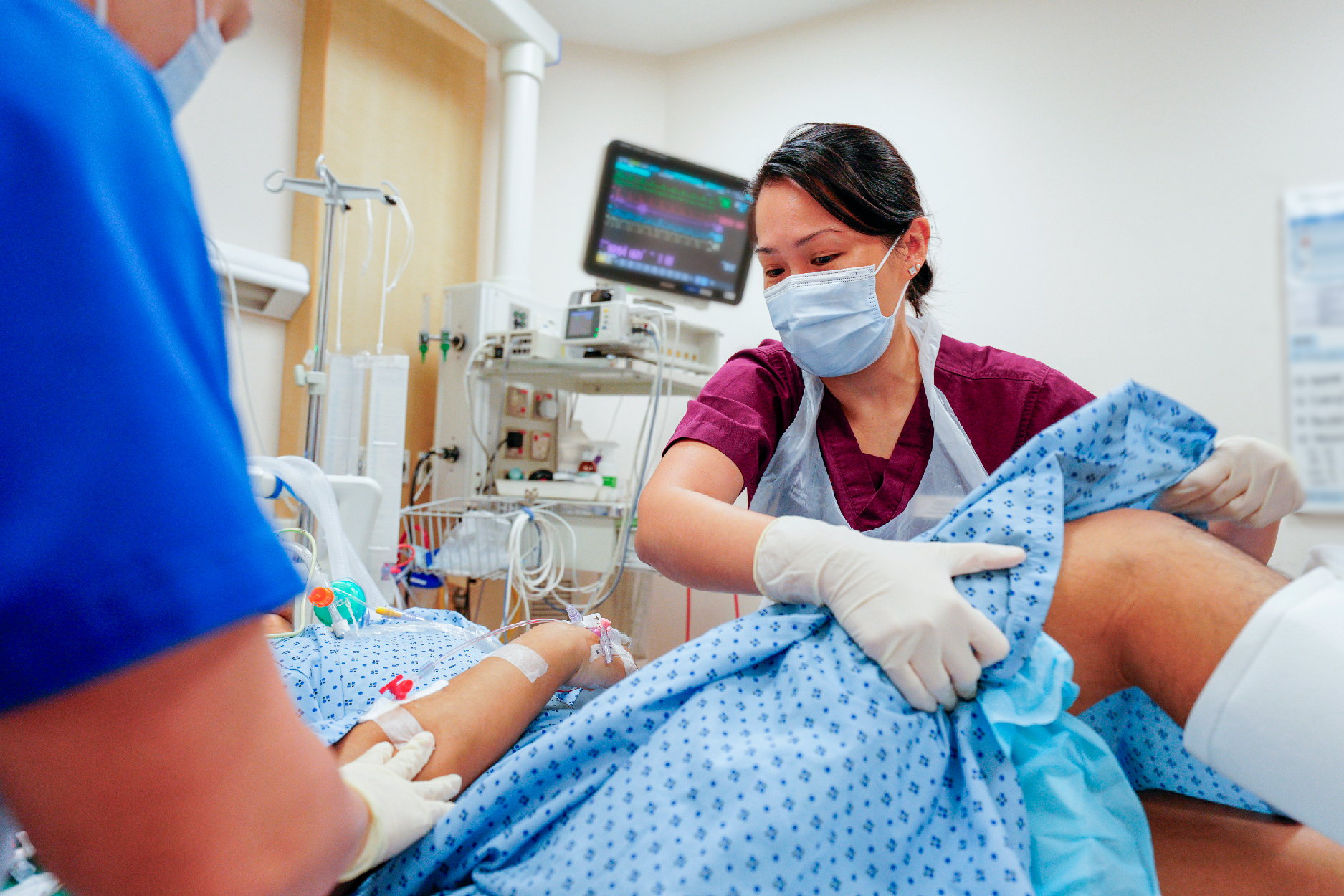The new National University Centre for Trauma provides critical care for both
adults and children following critical accidents and traumatic events.
Issue 6 | September 2024

 Subscribe and ensure you don't miss the next issue!
Subscribe and ensure you don't miss the next issue!
The Ministry of Manpower’s Workplace Safety and Health Report 2023 reveals that sectors such as construction and manufacturing accounted for 60 per cent of fatal and major injuries last year. In this context, robust trauma care systems, capable of managing severe and life-threatening injuries effectively, are indispensable for treating those affected.
Trauma care requires an organised, coordinated effort to deliver a full spectrum of services to injured patients — from the moment of injury through transport to an acute care facility, and ultimately, to rehabilitative care. This continuum of care, encompassing closely integrated key providers such as pre-hospital services, acute care and rehabilitation, ensures a seamless and steady path to recovery.
The National University Hospital (NUH) manages approximately 1,300 severe and critical trauma cases annually, including an estimated 140 cases from industrial accidents. The National University Centre for Trauma was set up to provide comprehensive care and outreach to vulnerable groups, enhancing safety and preventing trauma. The Centre addresses the essential aspects of trauma care, including clinical operations, audit and benchmarking, injury prevention, survivorship and research.
Expediting care and improving recovery
“Effective trauma care is contingent on a multi-faceted approach, requiring collaboration amongst various healthcare professionals, as well as resources to ensure optimal treatment and recovery,” says
Adjunct Assistant Professor Raj Menon, Senior Consultant,
Division of General Surgery (Trauma),
Department of Surgery, NUH, who is also the director of the National University Centre for Trauma.
“We also aim to bring down trauma rates across the entire western region of Singapore and on a national scale,” says A/Prof Menon. “To do so, we are leveraging data to analyse local and national trends, identifying spikes in specific types of trauma, including their epidemiology, location and timing. This information guides our population interventions and policy measures. To drive greater awareness of injury prevention , we conduct
targeted outreach and education initiatives aimed at vulnerable groups most at risk of trauma, particularly children, older adults and migrant workers. ”
In trauma care, every minute counts. The Centre’s Code Trauma is a response protocol that swiftly mobilises essential personnel, including emergency physicians, trauma surgeons and anaesthesiologists, to respond to patients with multiple injuries. This coordinated effort has halved the time needed to transfer patients from the emergency department to the operating theatre.
“Beyond emergency response, the Centre has a multi-disciplinary trauma clinic that offers integrated consultation and therapy sessions for recovering patients — reducing the need for multiple appointments with different healthcare professionals,” says A/Prof Menon.
The Centre is also home to Singapore’s first
trauma survivor support group, providing members with a sense of community and access to vital resources as they navigate the often-challenging journey of recovery. Importantly, fostering a supportive environment improves the emotional and psychological well-being of trauma survivors — a critical component of effective, holistic care that catalyses recovery.
Research is another key pillar of the Centre, with collaborative efforts spanning injury prevention, acute management and rehabilitation. “Current research initiatives include the identification of major haemorrhage in partnership with pre-hospital services like the Singapore Civil Defence Force (SCDF), as well as assessing the economic burden of trauma — particularly workplace accidents — and examining the impact of geriatric trauma. Our clinical research also explores coagulopathy and effective methods to reduce the need for blood transfusions,” adds A/Prof Menon.
_____________________________________________________________________________________________________________________________
Like this article? Simply subscribe to make sure you don't miss the next issue of EnvisioningHealth!


















